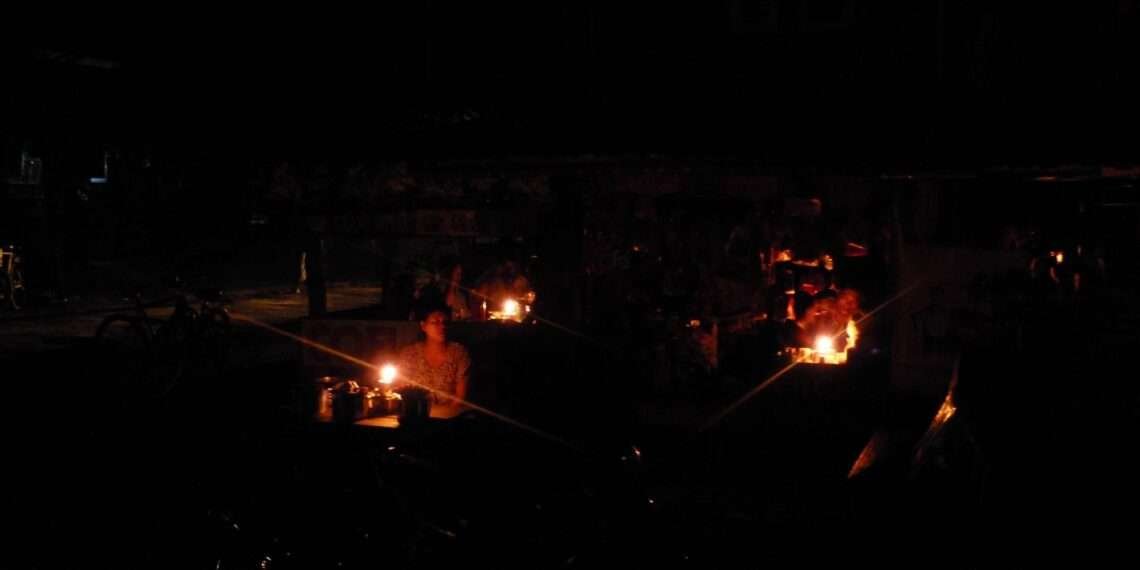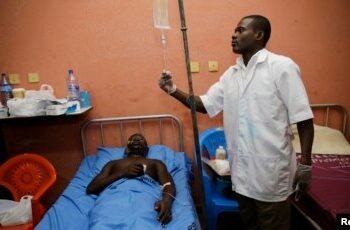Collins Adomako-Mensah, the Deputy Minister-Designate for the Energy Ministry has announced that the government is taking steps to address the recent power outages that have been occurring across the nation for the past two weeks.
The Deputy Minister-Designate for the Energy Ministry, Adomako-Mensah assured the public of the government’s full commitment to resolving the issue, acknowledging the recent power disruptions and emphasizing ongoing efforts to rectify the situation.
“I acknowledge that there have been some power outages for the last two or three weeks, but it’s interesting that the Minority is holding a press conference as a result of the two weeks of power outages. I haven’t had much time to settle into the Energy Ministry, but from what I’ve seen in my brief conversations with Ministry officers before my vetting, this should be resolved within the next two weeks.”
Collins Adomako-Mensah, Energy Minister Designated
However, dismissing President Akufo-Addo’s assertion in Parliament that there has been a steady supply of electricity for the previous seven years, former Power Minister Dr. Kwabena Donkor voiced concerns about Ghana’s ability to generate electricity.
The former Power Minister Dr. Kwabena Donkor, disclosed that insufficient fuel supply has been the cause of the recent intermittent power outages, according to the Public Utilities and Regulatory Commission (PURC), which plans to work with the Independent Power Producers to find solutions.
Some History
The history of power outages in Ghana, often referred to as “dumsor,” dates back to the early 2000s and has been characterized by the erratic power supply, insufficient generation capacity, and recurring periods of load shedding.
In early 2001, Ghana’s power supply became erratic due to a significant drop in water levels at the Akosombo Dam, Ghana’s main hydroelectric dam. This led to reduced generation capacity and rolling blackouts.
In late 2008 water levels rose, and the power crisis was temporarily resolved. However, by 2015, Ghana’s generating capacity was only 400-600 megawatts, insufficient for the nation’s needs.
The government in 2012 announced that a ship’s anchor had cut the West African Gas Pipeline (WAGP), forcing gas turbines to shut down due to a lack of fuel. This event marked the beginning of a major power crisis, with load shedding becoming a regular experience.
The 2012-2015 crisis saw the most intense and protracted power crisis in Ghana’s history, starting with inadequate gas supply to power thermal plants and poor rainfall affecting hydro sources. Ghana experienced about 159 days of blackouts in 2014 alone, and the crisis reduced electricity demand by 27.6%.
In response to the crisis, Ghana implemented emergency solutions such as the Karadeniz Powership Aysegul Sultan, a floating power plant that produced 250MW of power and connected directly to Ghana’s grid. This was seen as a quick fix to the energy crisis but raised controversy in Ghanaian politics.
Impact of Power Outages
Power outages in Ghana, often referred to as “dumsor,” have had significant impacts on the economy and infrastructure of the country.
“Dumsor has had a significant toll on the economy. Nearly 50% of the country’s small-scale industries lose several hours each month due to a lack of reliable power, while the rest resort to costly generators. Overall, outages reduced GDP by an estimated 2% in 2014 alone and were associated with a surge in job losses in 2015.”
Ebenezer Nyarko Kumi, Univ. of Energy and Natural Resources
The lack of reliable electricity has negatively affected economic growth. Inadequate power supply leads to higher costs for goods and services, limits job opportunities, and hinders the delivery of critical services such as healthcare and education. For businesses, it stifles investment, leading to increased energy costs, reduced employment income, and lost productivity. This has resulted in a loss of billions of dollars per year for Ghana.
Again, the frequent power outages have also posed challenges to the country’s infrastructure. The need to switch to alternative, often costlier, and less efficient energy sources, such as burning fuel, has not only led to environmental issues but also increased the risk of fires and health hazards in homes. This has further exacerbated the economic impact by requiring additional investments in safety measures and infrastructure to mitigate these risks.
The power outages and crises have had significant political, economic, and social impacts on Ghana. They have led to public protests, campaigns like #dumsormuststop, and a shift in the country’s energy policies and strategies to address the challenges of supply and demand. Despite improvements, the country continues to grapple with energy challenges, highlighting the need for sustainable solutions to ensure a reliable power supply for all residents.
READ ALSO: UN Concerned About Anti-LGBTQ+ BILL





















